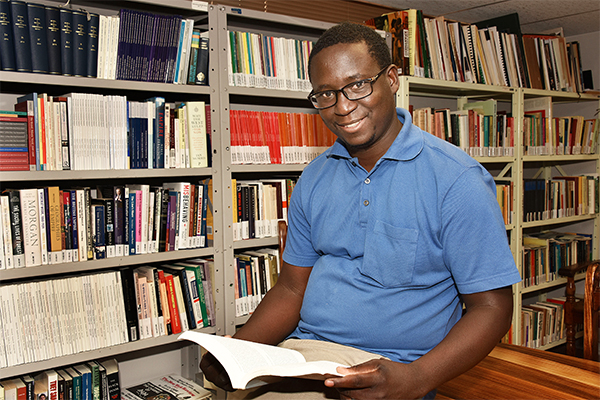Latest News Archive
Please select Category, Year, and then Month to display items
28 June 2022
|
Story Nonsindiso Qwabe
|
Photo ALBERT VAN BILJON
 In conversation: Prof Petersen and Leanne Manas.
In conversation: Prof Petersen and Leanne Manas.
An outward-looking, globally competitive university that ranks among the top-tier universities in South Africa and on the continent, driven by a strong human-centred, diverse social-justice approach. This is at the heart of the vision
Prof Francis Petersen, Rector and Vice-Chancellor of the UFS, shared with multi-award-winning
news anchor
Leanne Manas during a sit-down conversation on Friday 22 July 2022.
Prof Petersen reflected on the great strides and difficulties faced during his first term, as well as navigating the UFS through the COVID-19 pandemic to position the institution in a strategic and focused manner as a university of choice on the continent
and in other parts of the globe.
 Prof Prakash Naidoo, Vice-Rector: Operations, introduced Leanne Manas
Prof Prakash Naidoo, Vice-Rector: Operations, introduced Leanne Manas
 Prof Francis Petersen
Prof Francis Petersen
 Leanne Manas and Prof Petersen In conversation
Leanne Manas and Prof Petersen In conversation
 Leanne Manas
Leanne Manas
 Leanne Manas meeting our staff members.
Leanne Manas meeting our staff members.
 Leanne Manas meeting our staff members.
Leanne Manas meeting our staff members.
 Leanne Manas meeting our staff members.
Leanne Manas meeting our staff members.
 Prof Petersen with some of our staff members
Prof Petersen with some of our staff members
 From the left; Prof Prakash Naidoo, Leanne Manas, Prof Francis Petersen and Temba Hlasho, Executive Director: Student Affairs
From the left; Prof Prakash Naidoo, Leanne Manas, Prof Francis Petersen and Temba Hlasho, Executive Director: Student Affairs
 Leanne Manas meeting our staff members.
Leanne Manas meeting our staff members.
 From the left; Prof Prakash Naidoo, Prof Francis Petersen and Quinton Koetaan, Senior Director; HRA
From the left; Prof Prakash Naidoo, Prof Francis Petersen and Quinton Koetaan, Senior Director; HRA
 Leanne Manas meeting our staff members.
Leanne Manas meeting our staff members.
Land a fertile field for historians
2017-12-25

Dr Admire Mseba, historian and researcher in the International Studies Group (ISG).
Photo: Charl Devenish
The use of land and the economics of Southern Africa at present is a contentious subject at almost every level of society. A historian and researcher who revels in happenings in these two areas, is Dr Admire Mseba, a postdoctoral research fellow in the International Studies Group (ISG) at the UFS.
Dr Mseba grew up in the Mberengwa region in southern Zimbabwe, known for cattle farming and mineral mining. While at the University of Zimbabwe, he became interested in economic history and archaeology, and completed his PhD at the University of Iowa in the USA. During his time there, Dr Mseba also became passionate about environmental history.
A historian's ability to think and engage critically on diverse subjects drew Dr Mseba to his field. Currently, he is busy with three research projects. Firstly, he is working on a book on social relations, about access to land in Zimbabwe. He is also examining regional and national efforts to control migratory pests during the 20th century, in particular, the red locust. In collaboration with a colleague at the ISG, Dr Mseba is also researching monetary systems in central Africa, covering the present-day countries of Zimbabwe, Malawi, and Zambia.
Dr Mseba believes future research opportunities in the domains of economic and environmental history abound. For one, the land question has been very topical in Zimbabwe for more than a decade—as it is now in South Africa—and needs more scrutiny. Regarding agrarian pestilences, he indicates the recent phenomenon of armyworm invasion. “There are so many opportunities for historians to investigate. There are so many ways to think about these things and trying to put it in perspective.”